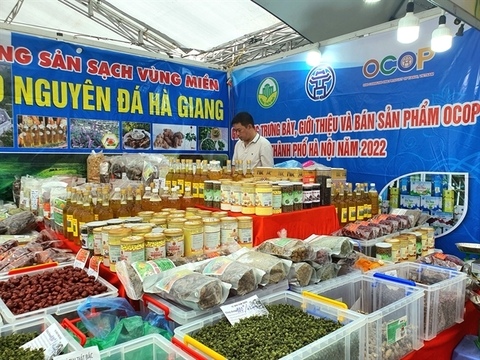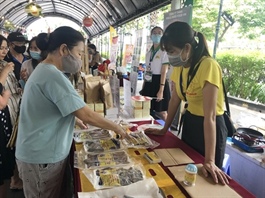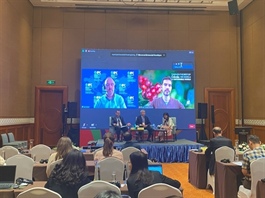New regulations to boost OCOP goods between now and 2025
New regulations to boost OCOP goods between now and 2025
The Ministry of Industry and Trade (MoIT) has introduced regulations for the sales of products under the One Commune One Product (OCOP) programme.

A point of sale for OCOP products in Ha Noi. — VNS Photo Ly Ly |
The new criteria will be in place for the next three years, from 2023 to 2025.
Under the new regulations, OCOP goods showcased in showrooms must achieve a minimum of three stars or higher based on the criteria for evaluating and classifying OCOP products promulgated by the Prime Minister.
Additionally, products must be the province's key, typical agricultural or industrial products or specialities that characterise the region's advantages, as determined by the MoIT.
The OCOP showrooms will be located in areas with dense traffic, such as airports, stations, highway rest areas, commercial centres, supermarkets, markets, tourist attractions, restaurants, hotels, craft villages, industrial zones, clusters, exhibition and product introduction centres and postal offices.
The new regulations aim to ensure that OCOP products meet market demands, satisfy customers' preferences, comply with legal requirements, and protect environmental and consumer health safety.
In March, the Government introduced a new set of criteria to rate OCOP products, replacing the old criteria that had been in place since 2019, which had started to show shortcomings after four years.
By the end of 2022, Viet Nam had 8,689 OCOP products, with 65.5 per cent of the products rated three-star, 33.6 per cent rated four-star, and a small percentage rated five-star potential or five-star.
OCOP products are known for their diverse and environmentally friendly designs and packaging, which meet the market's demands and promote sustainable development.
The programme has also helped to increase production scale and revenue for local communities, as well as promote the development of speciality raw material areas, rural industries and the preservation of traditional craft villages.
Moreover, the OCOP programme has significantly promoted livelihood development in remote and ethnic minority areas, especially for women.






















